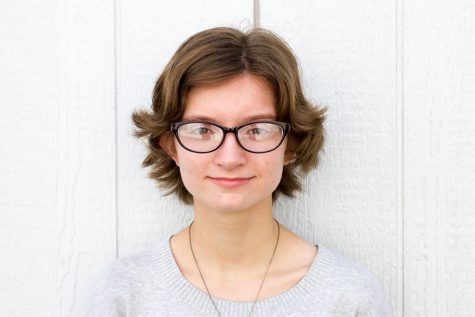Dear Parents for Banning Books
October 20, 2015
Dear Parents for Banning Books,
I’ve certainly read a lot about you recently and the books you’ve tried to ban. Books you want to remove from schools, classrooms and libraries, books you feel the need to protect your children from got you all fired up, don’t they?
I understand the desire to protect your children. No one wants their child to be confronted with sensitive subjects before they’re mature enough to handle it. However, when that protectiveness crosses over into “We must remove this book immediately, get rid of it now!” then there is a problem.
- Your logic for removing a book doesn’t make sense. The reasons offered for banning a book almost always center around the argument that the book’s content is not appropriate for students, and should therefore be hidden from them at all costs. Take the banning of The Absolutely True Diary of a Part-Time Indian by Sherman Alexie, which was challenged in a middle school for profanity and references to (gasp!) masturbation. Or the challenge to The Miseducation of Cameron Post by emily m. danforth, which was removed from a summer reading list for 9th graders after a parent complained about its “foul language.” (Interesting, since the protagonist is lesbian.) OR And Tango Makes Three by Justin Richardson and Peter Parnell, a picture book telling the true story of two male penguins who raised a child together in the zoo.
These parents are concerned about foul language, sexuality, violence, and in some cases, the race or religion of the characters. All of these subjects deal directly with the process of growing up—of discovering one’s sexuality, of being confronted with violence in the media and in the settings around you, of hearing foul language at all times of the day. I hate to break it to you, but if you think your child has never been confronted with these topics, then you are deluding yourself because there are overwhelming odds that they face, and banning a book because it touches on sex or profanity simply lacks common sense.
- One parent ≠ the parents of all. The banning of books involves projecting your opinions on everyone else, unasked and unbidden. One parent—one—complained about the content of Courtney Summers’ book Some Girls Are, on a summer reading list for high school freshman , and then confiscated her daughter’s e-reader. However, the parent then decided to file a formal complaint about the book and to have it removed from the list, effectively taking it upon herself to “protect” each and every freshman, regardless of what they, or their parents, would have wanted. But just because you disagree with something does not give you the authority to act for everyone else. So, with all due respect, stay in your lane.
- Books are important. While many of you would probably like to think that the books you are challenging are not important—that they are instead vulgar, disgusting, or perverse—they are important. And ignoring that essential fact is not only ignorant, but harmful.
Unavoidably, children, of all ages, go through rough things. Maybe they grow up gay in an unsupportive family. Maybe they face vicious racism, from classmates and/or the government. Maybe they’ve been sexually assaulted, or are living through a war. It sucks, but many children endure all of that and more. We don’t acknowledge or talk about it as much as we should, but it happens. While books do not magically solve these problems; they do have the ability to show a child they are not alone.
Children need to see themselves in books, and they need to see each other. Reading about diverse backgrounds, or people who look differently from you, or who worship differently from you, teaches empathy. Learning to look at things from a different perspective—in a world of many different religions, different languages, and different cultures—allows you to see the struggles these different peoples face, to step into someone else’s shoes and learn new things. And that is invaluable.
That is why books are so important, Parents for Banning Books, and why they carry so much power. Books are a window into someone else’s life. They can be a lifeline to an abused boy, or a comforting presence to a hopeless girl—and you do not have the right to take that away.
–Nora Stewart
If you’d like to read some banned/challenged books of your own, here are a few to check out:
Persepolis by Marjane Satrapi
Yacqui Delgado Wants to Kick Your Ass by Meg Medina
Two Boys Kissing by David Levithan.



